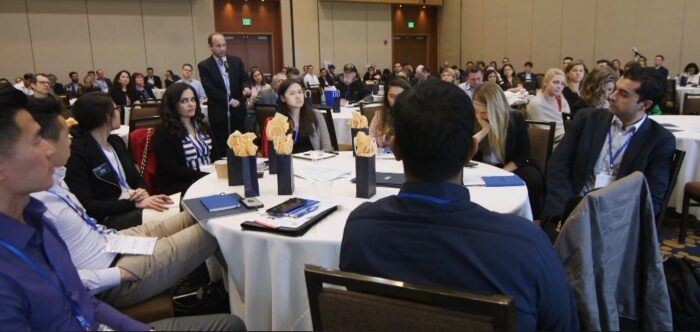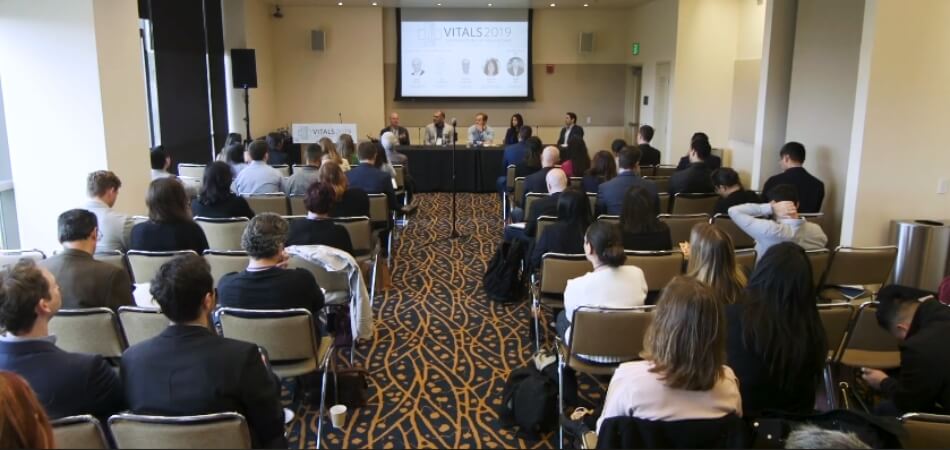Healthcare conferences are not just formal events; they’re epicenters of innovation and collaboration in the medical field. These gatherings bring together professionals from diverse backgrounds, offering a unique platform to exchange ideas and forge connections. But what are the benefits of Health Conferences?
Primarily, Health Conferences provide invaluable networking opportunities with industry peers, critical for personal and professional growth. Additionally, these conferences offer Continuing Medical Education (CME) sessions essential for staying abreast of the latest advancements in healthcare. Insightful presentations by experts inspire and inform, while the events themselves are enjoyable and refreshing.
Overall, health conferences serve as a dynamic hub for learning, sharing, and fun, uniting professionals passionate about advancing healthcare. Find out our detailed review of the benefits of health conferences in the following article.
A Quick Overview of Health Conference
Attending any public health conference is essential in the medical community. These events offer a blend of education, networking, and innovation and attract healthcare professionals eager to expand their knowledge and skills. They also serve as a platform for sharing the latest advancements in healthcare.

In these conferences, attendees gain access to valuable Continuing Medical Education (CME) sessions. These sessions are crucial for keeping up with evolving medical practices and technologies. Additionally, professionals can network at international healthcare events, encouraging collaboration and potential partnerships.
Moreover, these gatherings feature insightful presentations from industry leaders. These presentations offer attendees a chance to learn about cutting-edge research and clinical practices. The events also include interactive workshops and panels, enhancing the learning experience. Such interactions are vital for professional growth and staying ahead in the ever-evolving field of healthcare.
Different Types of Health Conferences
Health conferences play a pivotal role in the medical field, offering diverse formats tailored to various professional needs. These gatherings vary in focus and structure, catering to a wide range of interests and specialties. Understanding the different types of healthcare conferences for professionals helps them choose the most relevant ones for their career growth.
General Medical Conferences
These conferences cover a broad range of medical topics, attracting a diverse group of healthcare professionals. They offer a comprehensive overview of current trends and advancements in medicine. Attendees can expect an outstanding keynote speech at conferences as well as panel discussions, and networking opportunities. These events are ideal for gaining a general update on the medical field.
Specialized Medical Conferences
Focused on specific areas of medicine, these conferences cater to niche medical specialties. They delve deeper into particular medical subjects, offering detailed insights and advanced knowledge. Attendees benefit from specialized workshops, case studies, and expert-led sessions. Such conferences are crucial for professionals seeking in-depth knowledge in their field.
Research and Academic Conferences
These conferences emphasize medical research and academic advancements. They are ideal for researchers, educators, and students in the medical field. The focus is on presenting new research findings, discussing methodologies, and fostering academic collaborations. Attendees engage in scholarly discussions and gain exposure to the latest research trends.
Technology and Innovation Conferences
Focusing on the intersection of healthcare and technology, these conferences showcase the latest in medical tech. They are platforms for unveiling new healthcare technologies, discussing digital health trends, and exploring innovative solutions. Professionals interested in the technological evolution of healthcare find these conferences particularly beneficial.
Health conferences offer varied platforms for education, networking, and innovation. From general medical updates to specialized knowledge, research insights, and technological advancements, these gatherings cater to a wide spectrum of professional interests. Choosing the right type of conference can significantly impact a healthcare professional’s career development and expertise.
Who Should Attend a Health Conference?
Health conferences offer invaluable opportunities for various professionals in the medical field. These events cater to a wide range of interests and specialties. Identifying who should attend helps in maximizing the benefits of these gatherings.
Medical Practitioners and Clinicians
Doctors, nurses, and other clinical staff find these conferences incredibly beneficial. They provide updates on the latest treatment protocols and medical advancements. Networking with peers and discussing clinical cases enhance their practical knowledge. Attendance is crucial for those seeking to stay abreast of clinical developments.
Researchers and Academicians
For those involved in medical research and academia, health conferences are a goldmine. They present new research findings, foster collaborations, and stimulate academic discussions. These gatherings are platforms for presenting papers and receiving feedback. Such events are vital for academic growth and research dissemination.
Healthcare Administrators
Administrators of hospitals and healthcare facilities gain much from attending these conferences. They learn about the latest in healthcare management, policy, and innovation. Networking with other administrators and industry experts helps in sharing best practices. These events are crucial for improving healthcare delivery and management.
Medical Students
Students who go to conferences as medical students benefit immensely. They get exposed to the latest medical knowledge and trends in healthcare. Such events offer unique learning opportunities and mentorship from seasoned professionals. For students, these conferences are windows into the future of medicine.
In summary, health conferences are essential for a broad spectrum of professionals in the medical industry. From hands-on practitioners to those shaping future healthcare policies, these events provide a platform for learning, networking, and growth. Attending these conferences is pivotal for anyone looking to stay informed and engaged in the ever-evolving field of healthcare.
What are the Benefits of Health Conferences?
Health conferences play a key role in the medical community, offering numerous benefits to attendees. These events are more than just meetings; they are hubs for growth, learning, and innovation. Here are some of the top benefits that a health conference holds:
Continuing Medical Education (CME)
Health conferences are a rich source of Continuing Medical Education (CME), which is essential for healthcare professionals to maintain their certifications and stay current in their field. These CME sessions cover a broad spectrum of topics, including the latest medical research, innovative treatment methods, and emerging healthcare trends.
Attending these sessions not only ensures that professionals are up-to-date with the latest developments in medicine but also enhances their ability to provide the best possible care to patients. These educational opportunities are often led by experts and thought leaders in various specialties, offering in-depth insights and practical knowledge that can be directly applied in clinical settings.
Networking Opportunities
Networking is a crucial aspect of health conferences, providing a unique platform for professionals to connect with peers, mentors, industry leaders, and potential collaborators. These connections can lead to fruitful collaborations, exchange of ideas, mentorship opportunities, and even career advancement.
Networking at health conferences also allows attendees to share experiences, challenges, and solutions with others in the field, fostering a sense of community and support. For many professionals, these connections can be invaluable in navigating the complexities of the healthcare industry and advancing their careers.
Exposure to New Technologies and Innovations
Health conferences often feature exhibitions and demonstrations of the latest medical technologies, equipment, and software. This exposure is vital for healthcare professionals to stay abreast of technological advancements that can improve patient care and operational efficiency.
These events provide an opportunity to learn about innovative products and services firsthand, often including demonstrations and interactive sessions. Staying informed about these technological advancements is essential for healthcare providers to remain competitive and offer the best possible care with the most up-to-date tools and methodologies.
Research and Academic Collaboration
For researchers and academicians, health conferences are a prime venue for collaboration and knowledge exchange. These events bring together experts from various subfields, facilitating the sharing of recent studies, findings, and theories.
This collaborative environment can spark new research ideas, joint projects, and partnerships, advancing the frontiers of medical science. Conferences also offer a platform for presenting research papers and receiving peer feedback, which is invaluable for refining studies and enhancing academic rigor.
Professional Recognition and Development
Presenting at health conferences can significantly boost a professional’s recognition in their field. It’s an opportunity to establish oneself as a thought leader and expert in a particular medical area. This recognition is crucial for career progression, as it opens doors to new opportunities, such as invitations to speak at future events, collaborate on projects, or contribute to publications.
Moreover, actively participating in these conferences contributes to a professional’s development, refining their presentation and communication skills, and enhancing their profile within the medical community.
Insight into Industry Trends and Policies
These conferences provide a comprehensive overview of current healthcare policies, industry trends, and future directions. This insight is invaluable for healthcare professionals in adapting to changes and preparing for future challenges in the sector.
Sessions and discussions at these events often cover policy changes, healthcare management strategies, and global health issues, offering attendees a macro perspective on the healthcare landscape. This knowledge is crucial for strategic planning, policy-making, and ensuring that healthcare organizations are aligned with industry standards and best practices.
Personal Growth and Inspiration
Beyond the professional benefits, attending health conferences can be personally enriching and inspiring. These events offer a change of pace from the daily routine, allowing professionals to engage with new ideas and perspectives.
They provide a source of inspiration and motivation, which is essential in a field as demanding and rapidly evolving as healthcare. The personal growth experienced at these conferences can rejuvenate one’s passion for the field, leading to increased job satisfaction and personal fulfillment.
In summary, health conferences offer a multitude of benefits, encompassing educational growth, professional networking, exposure to new technologies, collaborative opportunities, professional recognition, industry insights, and personal development. These events are integral to the continual advancement and enrichment of professionals within the healthcare industry.
Tips to Make the Most Out of a Health Conference
Attending a health conference can be a transformative experience for healthcare professionals. To maximize the benefits, it’s important to approach these events strategically. Here are some tips to help attendees make the most out of their health conference experience.
- Plan Your Schedule in Advance: Review the conference program beforehand and identify must-attend sessions. This planning ensures you don’t miss key presentations relevant to your field.
- Network Actively: Don’t hesitate to introduce yourself to peers and speakers. Networking is invaluable for building professional relationships and sharing knowledge.
- Participate in Workshops: Engage in hands-on workshops for practical experience. These sessions often provide deeper insights into specific areas of interest.
- Take Notes Diligently: Jot down key points from sessions and conversations. Notes are useful for recalling insights and sharing with colleagues post-conference.
- Ask Questions: Utilize Q&A sessions to clarify doubts and gain deeper understanding. Engaging with speakers can provide additional perspectives and information.
- Visit Exhibits: Explore the exhibit hall to discover the latest healthcare technologies and services. Exhibits can be a source of inspiration and innovation.
- Reflect and Review: After the conference, take time to reflect on what you’ve learned. Reviewing your notes and experiences helps integrate new knowledge into your practice.
- Share Your Learnings: Share your conference experiences with colleagues and your professional network. Discussing your learnings can further solidify your understanding and benefit others.
Making the most out of a health conference involves careful planning, active participation, and thoughtful reflection. By following these tips, attendees can enrich their professional knowledge, expand their networks, and bring valuable insights back to their organizations and practices. The key is to be engaged, curious, and open to new ideas throughout the conference.
Final Brief
Understanding “What are the benefits of Health Conferences?” reveals a multifaceted impact on the medical community. These conferences are pivotal in fostering continuous learning through CME sessions, enabling cutting-edge insights into medical advancements and technological innovations.
They serve as a melting pot for networking, offering unique opportunities for professionals to connect and collaborate. Additionally, health conferences are instrumental in facilitating research collaborations and academic discussions, while also providing platforms for professional recognition and development.
Beyond these tangible benefits, they contribute significantly to personal growth and inspiration, rejuvenating passion and commitment in healthcare professionals. Ultimately, health conferences are not just events; they are catalysts for advancement, innovation, and community building in the healthcare sector.







